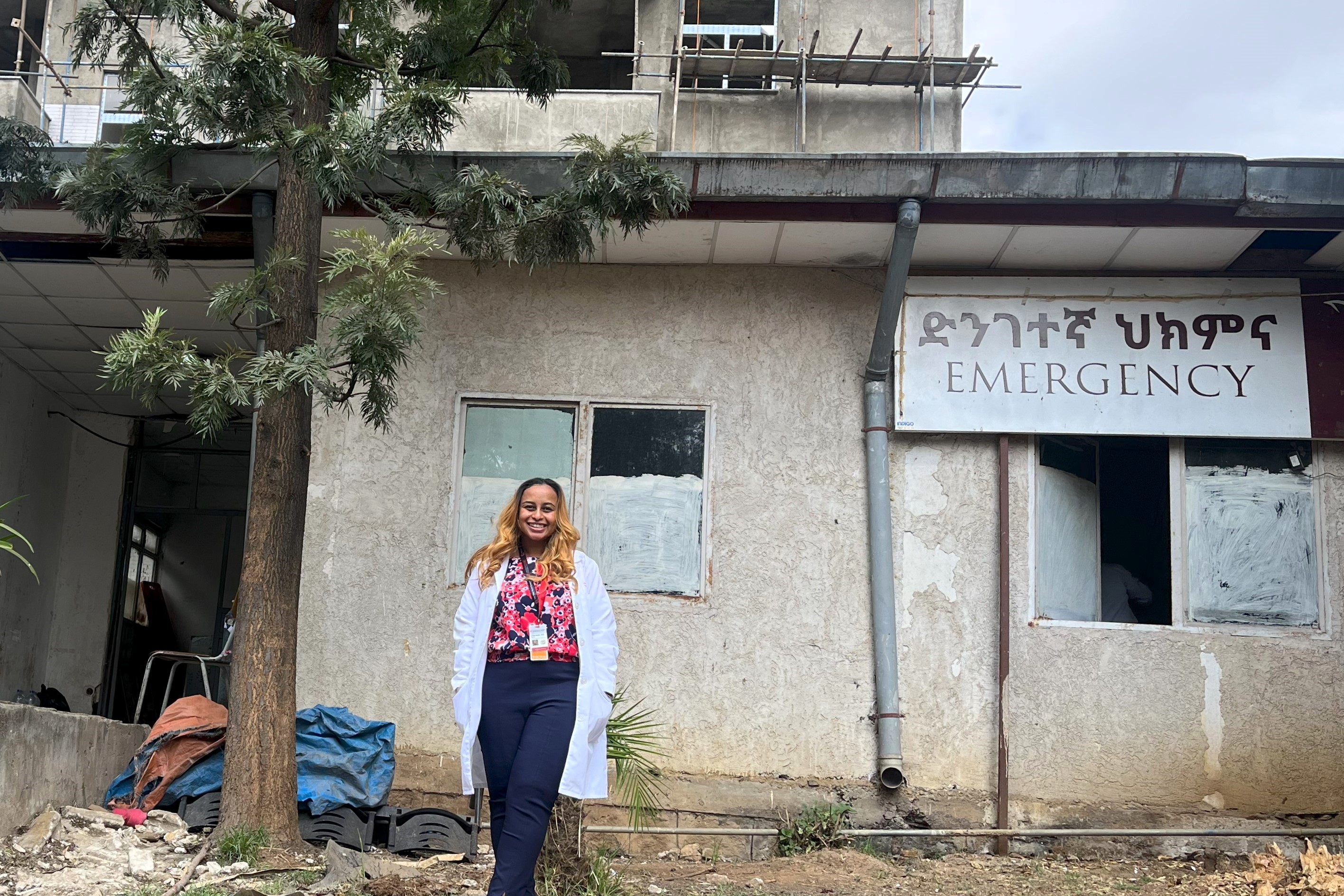Saron Checkole, a second-year emergency medicine resident, recently traveled to Ethiopia to complete a month-long rotation at one of the biggest community and clinical training hospitals in the nation. The Tikur Anbessa Specialized Hospital (TASH) research hospital has been a hotbed of activity in recent years, serving as one of the main partner sites for Ohio State’s Global One Health initiative.
Born and raised in Ethiopia, Checkole was initially accepted to medical school in her home country but instead opted to complete her training at Ohio University’s Heritage College of Osteopathic Medicine. “I speak Amharic which is one of the official languages of Ethiopia. I thought, why don’t I go back to Ethiopia and work there for a month? It was an eye-opening experience for me.”
Checkole is part of the Global Health Scholars program made up of graduate medical education residents and fellows who have traveled to work in diverse locations like Thailand, Indonesia and Ethiopia to better understand international health practices around the world and the realities of working in resource-limited areas.
“Growing up in Ethiopia, I knew there were needs for physicians and resources. I had an uncle pass away when I was in Ethiopia from leukemia and there wasn’t a lot of access to chemo or radiation. It’s actually pretty advanced now compared to 10 or 12 years ago. They have 700 beds and an emergency medicine residency that was established in 2010.” Despite advancements in care and equipment, there are still gaps in the system.
“In our ED, we have cardiac monitors for every patient in every room,” explained Checkole. “They only have two cardiac monitors” for the entire emergency department. “My first day at the TASH ED, I was really shocked when I saw a patient on a cardiac monitor and he was having a heart attack. Unfortunately, there is no access to acute intervention such as access to the Cardiac Catheterization Lab and most patients received only medical management.” She also noted lack of consistent access to medications and equipment for intubation, chest tubes and sometimes even hand hygiene supplies such as gloves—all resources that American doctors take for granted. “A lot of the resources, they don’t have, things that we just throw away. I thought about all the resources that I wasted while I was here. I try to be more mindful now,” she said.
Checkole did notice that the shortages of physical resources led to an impressive level of knowledge and technique that helped to fill those gaps. “They were extremely knowledgeable as they read straight out of the emergency medicine textbooks we use.” Medical residents in the United States more often learn through podcasts, conference didactics and on shift, but “in Ethiopia, they don’t have as much access to teaching resources, so they just read the book.” Any time the attending would ask a question, the residents would be able to provide a by-the-book answer off the top of their head. “They are so smart and capable.”
While she was at TASH ED, Checkole undertook a needs assessment study to survey current residents at the hospital. She presented her findings at the 2024 Global Health Symposium in April, which was hosted by the Global Health Interest Group. She asked the cohort about the prevalence of Basic Life Support, Advanced Cardiac Life Support and Advanced Trauma Life Support training, and found that nearly 52% of residents had not had access to any of these common trainings which U.S. residents usually receive prior to their intern year. Fifty-nine percent also reported never receiving formal training about hand hygiene prior to their residency or during orientation.
Checkole hopes to return in future years to help fill that training gap. “My goal next year is to teach some things and take some resources that we don’t use here. Training is a more long-lasting solution.” She hopes to “make something standardized that they’re able to sustain.”
